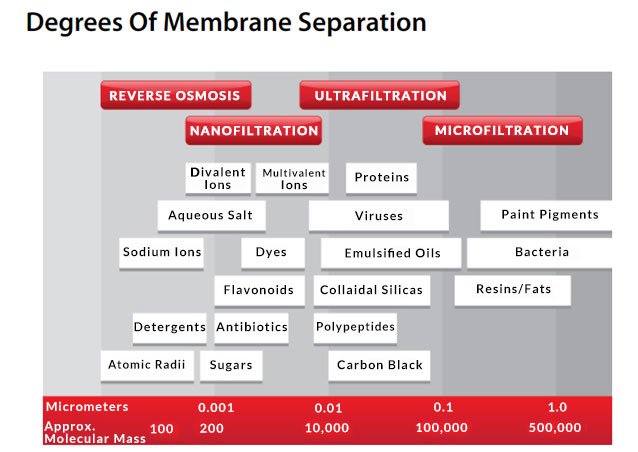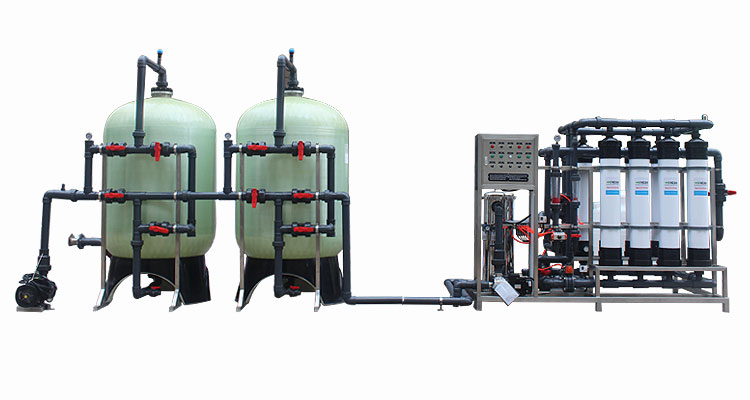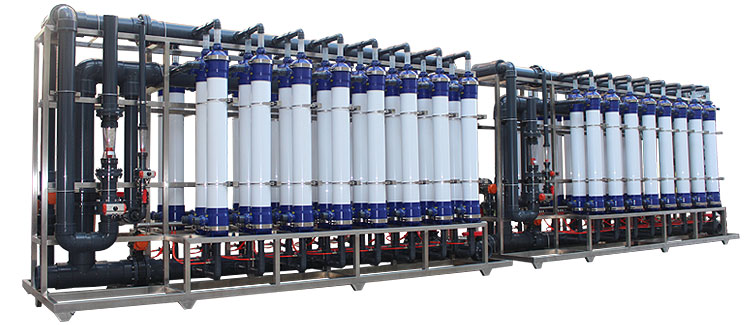What are the advantages of ultrafiltration for enterprises?
As an advanced water treatment method, ultrafiltration technology is widely used in enterprises and industrial fields. It can not only effectively remove particulate matter and microorganisms in water, but also has many other advantages. In this news, we will explore in depth the advantages that ultrafiltration technology brings to enterprises and its importance in industrial applications.

How ultrafiltration technology works
Ultrafiltration technology filters water through ultrafiltration membranes. Its operating principle mainly includes the following steps:
1. Pretreatment: Water is pretreated to remove large particles and suspended matter, purify water quality, and protect ultrafiltration membranes.
2. Membrane filtration: Water passes through the ultrafiltration membrane, and the membrane pore size is small, which can effectively intercept particulate matter, microorganisms and organic matter in the water to provide clean water.
3. Membrane permeability: After filtration by the ultrafiltration membrane, clean water passes through the other side of the membrane, and the intercepted impurities remain on the membrane surface to form concentrates.
4. Backwashing: Regularly backwash the ultrafiltration membrane to remove dirt and blockages on the membrane surface, restore the filtration performance of the membrane, and extend the service life of the membrane.

What are the advantages that ultrafiltration brings to enterprises?
The advantages that ultrafiltration technology brings to enterprises mainly include:
1. Excellent performance: UF ultrafiltration membrane has good thermal stability, chemical stability, acid resistance, alkali resistance, microbial erosion resistance, and antioxidant characteristics, and can stably provide efficient filtration effects.
2. No chemicals required: The ultrafiltration process does not require the use of chemicals, such as coagulants, flocculants, disinfectants, pH regulators, etc., which reduces the use of chemicals and pollution to the environment.
3. Size exclusion filtration: Ultrafiltration technology adopts the principle of size exclusion filtration. In contrast to medium depth filtration, it can efficiently remove particles and microorganisms in water and improve water quality.
4. Stable water quality: The treated water has good and stable quality, removes particles and microorganisms, and meets the requirements of industrial production and domestic water.
5. Compact process: The ultrafiltration system has a compact structure and a small footprint, which is suitable for installation within the enterprise, saving space and cost.
6. Simple automation: The ultrafiltration system is simple to operate and can be automatically controlled, reducing manual operation and improving production efficiency.
7. Environmental protection: The ultrafiltration process does not require chemicals, reduces environmental pollution, meets the requirements of sustainable development, and is environmentally friendly.

How does ultrafiltration technology affect corporate development?
The widespread application of ultrafiltration technology has a positive impact on corporate development. First, it improves the production efficiency and product quality of the enterprise and enhances its competitiveness; second, it saves water costs and reduces production costs; third, it meets environmental protection requirements and enhances the social responsibility image of the enterprise; finally, the application of ultrafiltration technology has also promoted the development of the water treatment industry and provided impetus for industrial upgrading and technological innovation.
How to choose a suitable ultrafiltration system?
The following factors need to be considered when choosing a suitable ultrafiltration system:
1. Water quality requirements: Select the appropriate ultrafiltration system type and configuration according to the enterprise's water quality requirements and treatment goals.
2. Processing capacity: Select the appropriate ultrafiltration system processing capacity according to the enterprise's water demand and usage scenarios to ensure that the system can meet the daily production and living water needs.
3. Operating cost: Consider the operating cost of the ultrafiltration system, including equipment purchase, installation, maintenance and consumables replacement costs, and choose an economical and practical system.
4. System stability: Choose ultrafiltration system brands and suppliers with stability and reliability to ensure long-term stable operation of the system.
5. After-sales service: Consider the quality of after-sales service provided by the supplier, including technical support, maintenance services, etc., to ensure the stability and reliability of system operation.
Summary
Ultrafiltration technology, as an efficient and environmentally friendly water treatment method, brings many advantages and conveniences to enterprises. It can not only effectively remove particulate matter and microorganisms in water, but also has the characteristics of no need for chemicals, stable water quality, compact process, simple automation and environmental protection.
Choosing a suitable ultrafiltration system requires considering factors such as water quality requirements, processing capacity, operating costs, system stability and after-sales service. The operating principle of ultrafiltration technology mainly includes pretreatment, filtration, membrane permeation and backwashing. In industrial applications, ultrafiltration technology has been widely used and provides reliable water resources for the production and life of enterprises.






